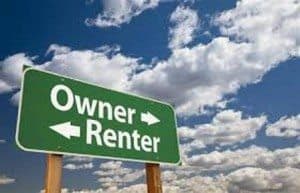Renting right now? And you’ve decided it’s time to purchase your own home and leave the world of renting behind. If you’ve always rented or it has been quite some time since you have owned a home. There a quite a few changes as you become a homeowner.

Renting to Buying a home 5 Things to Know
Here are five things to look out for as you start the process of buying a home.
- Get Your Credit in Check
- Budget, Then Shop
- Take the Inspection Seriously
- Factor in the Extra Costs
- Repairs are Your Responsibility
Get Your Credit in Check
Before you start dreaming about white picket fences or painting the walls your favorite color, you need to make sure you have a credit score that will make the banks want to give you a mortgage. In general, the higher your credit score, the lower your interest rate, which means your credit score can save you thousands of dollars.
Budget, Then Shop
You shouldn’t even think about house hunting until you have your finances sorted out and understand the newly implemented mortgage rules. Many first-time homebuyers make the mistake of finding a place they love and then sorting their mortgage around it.
Before you start looking at houses, meet with the bank to determine what interest rates and mortgages you can afford. A good real estate agent will only show you homes in that price range.
Take the Inspection Seriously
Before you get your heart set on the home of your dreams, you need to have the property inspected. When you rented, inspecting the property meant checking to see if the appliances worked or if there were holes in the walls. If anything major came up, such as a drainage or mold problem, the landlord or superintendent handled it. But now, it’s up to you and your home inspector to spot everything from mold to leaks before you buy the home.
Inspections vary by region. While home inspectors in the South look into hurricane standards and sinkhole possibilities, inspectors in California are checking for earthquake structural damage. Talk to the inspector about which issues are specific to your region, and accompany the inspector and ask plenty of questions.
Factor in the Extra Costs
Once you become a homeowner, you’ll have to pay property taxes, which in some cases are part of your monthly payment. Remember that even if you have a fixed-rate home loan, your property taxes could increase and raise your monthly housing payment.
Another extra cost of owning a home is homeowners insurance. Lenders require that anyone taking out a home loan have homeowners insurance. The cost depends on the location of your home, the materials used to build it and other factors.
Repairs are Your Responsibility
After everything is signed and you’re standing inside your new home, it will hit you: Anything that goes wrong in that home is up to you to fix. This is one of the most daunting tasks that differentiates homeownership from renting. If there’s a leak or the refrigerator breaks, there’s no calling maintenance to fix what’s broken. It’s up to you to fix a leak (or call and pay for a plumber) or to fix or buy a new refrigerator. The home is your baby, and it’s your job to keep it alive and livable.
We hope you found this article helpful. Please check back often as we are always updating our site with good information for home buying, selling and ownership. If you need our help in finding your new home or selling your current home, we are always just a click here or call to 813-300-7116 away.